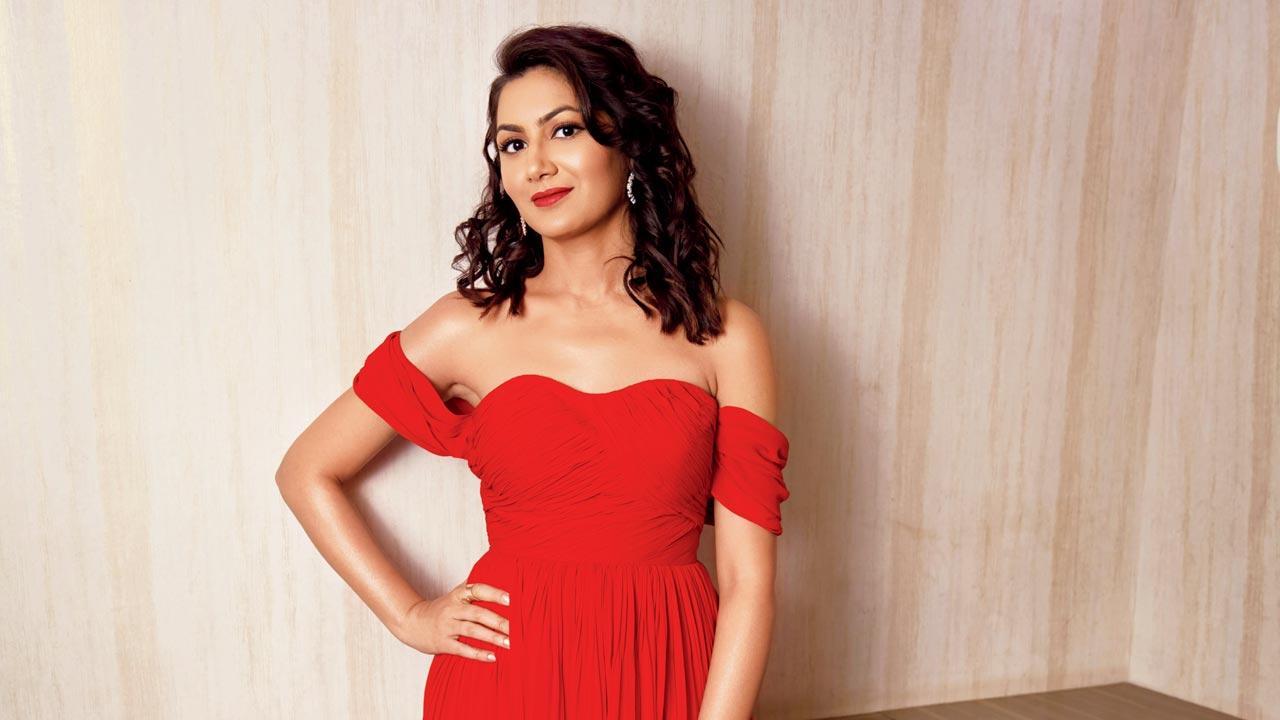Glad to steer clear of submissive roles, Sriti Jha on how her part in Kaise Mujhe Tum Mil Gaye is different from past roles

Sriti Jha
There are those who go outside their comfort zone. Then, there are those who thrive in comfort. Sriti Jha belongs to the latter category and has no qualms in admitting that she seeks comfort in her roles. The actor was part of Kumkum Bhagya for seven years before calling it quits. Now, she is returning to television after two years with a new show, Kaise Mujhe Tum Mil Gaye, opposite close friend Arjit Taneja. In a chat with mid-day, she talks about her novel character in a not-so-novel plot, the ease of long-running shows, and why she hasn’t transitioned to OTT yet.
Edited excerpts from the interview.
Most love stories on television are between a rich man and a middle-class woman. Why can’t they be from the same financial strata?
That story too has been told a few times. Take Pavitra Rishta, for example. The lead characters belonged to the same financial and social backgrounds. However, I think it’s interesting to have both economic backgrounds in a story. [The creative teams probably] want to show that despite the disparity, the leads are culturally similar.
But the men are always shown as rich, not the women. Wouldn’t it be interesting to see a switch?
[Laughs] The intention is to reach out to more female audiences. So, they can show [that she has] more struggles with lesser money and lesser opportunities. Eventually, the makers can show a bigger victory. If you have a lot of money, it’s already a victory. The shows are catering to women, so you have to show her as the hero. I love doing it because I’m the hero.
How did you prep for Kaise Mujhe Tum Mil Gaye?
Homework is always essential. But, for this, I only read the script thoroughly. I cannot go to the set without knowing my character. I don’t improvise initially. We’ve shot exactly for a month. When I become comfortable with the character is when I can improvise. In the start, I base it on the script, and I’m nervous about doing too much or too little. That is when directors help me out.
While most shows boast about bringing forth a new story, ultimately they have the usual tropes. How does this character differ from the ones you’ve played before?
After shooting 11 episodes, I’ve realised this is probably my second show where I have not been shy. In the first one [Jyoti], my character had split personality disorder. Here, she is not shy and claims her qualities. If someone compliments her, she says, ‘I am the best at this job.’ I’m not like her at all. When she goes to meet prospective grooms, she doesn’t pretend to be submissive. She has conversations about not changing last names lightly. It’s nicely done without making it too heavy.
What’s your take on shows—should they be finite or long-running?
Except for Kumkum Bhagya, no other show of mine has run for more than a year. I could say that I’d like shows to only run for a year, but logistically it doesn’t work for the channel or the producer. It takes a year to set the mood and tone. The longer the show runs, the more the producer creates a base. I know of shows that were supposed to be finite, but they have run for years because they have worked so well. No channel or producer would want to shut a successful show.
When you were part of a long-running show, at what point did you say this is enough?
I can’t believe this has such a negative connotation, but I’m a comfort-seeking person. Plus, since we shot every day, [we] became like a family. It
was far too comfortable for me to complain about it. It may not be challenging, but it’s not easy.
Why haven’t we seen you in web shows considering you are known for your acting skills?
I have been called for tests, I have auditioned for several good parts, but they’ve not materialised. But I have to wait it out. I don’t think it is because of any prejudice against television actors as many have managed to successfully make that transition. I see the respect they have for my work as an actor.
 Subscribe today by clicking the link and stay updated with the latest news!" Click here!
Subscribe today by clicking the link and stay updated with the latest news!" Click here!










